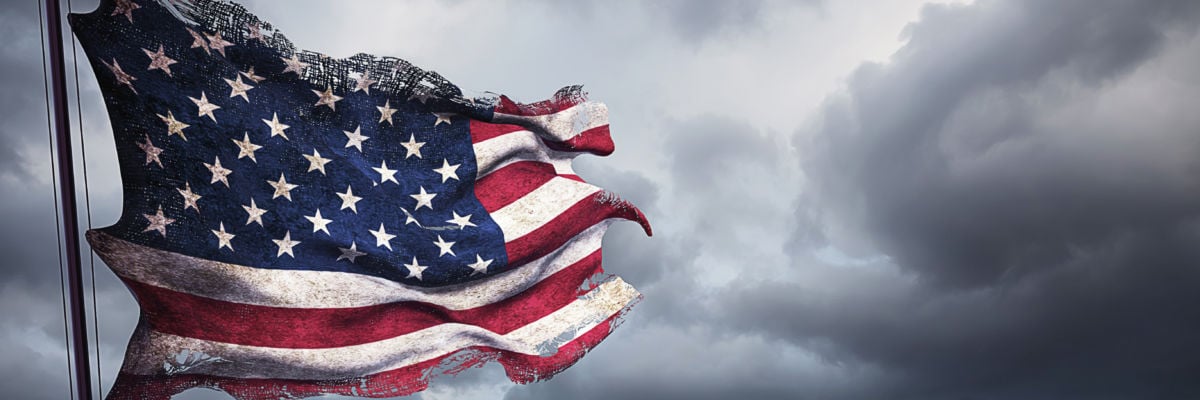
Ask somebody what defines an American, and you’re likely quick to hear the word freedom. Our national anthem concludes by proclaiming us “the land of the free and the home of the brave.” The Constitution, the 236th anniversary of whose signature we mark this week, was written to protect Americans’ freedom. We might say freedom is in Americans’ DNA.
Yet we might also suggest that we are very unclear what freedom means.
Is freedom an end or a means? That is our modern problem. Let’s explore it.
The French philosopher Jean-Paul Sartre thought freedom is for freedom, that freedom is an end in itself. What matters was not what we do, but that we do it freely. Doing things freely is “authentic.” It gives us our identity. It is expressive of our “real” selves.
For Sartrean ethics, then, what makes something good or bad is not what that something is, but that it is done freely. In that system, freedom and good are not different: they basically merge into each other.
Sartre and the atheist existentialists who followed him in postwar Europe were popular. Their impact was hardly limited to their day. The American abortion debate, especially after Dobbs, is very much Sartrean: “The question is not what is abortion?, but who chooses?”
Is this view of freedom compatible with Catholicism? No—and not (just) because it’s been used to promote abortion.
It’s incompatible because it collapses the real distinction between freedom and good. They are not the same.
Just try to apply the “ethic of choice” model to any other area outside sex. “The question is not what theft is, but whether I choose to steal.” Applying this model to life would produce civil anarchy. (It then raises the question: why should sexual morality be different?)
What this example shows is that good and freedom are not the same thing. They can but are not necessarily identical.
A healthy moral sense understands that we do things because they are good. The first principle of practical reason—the hardwiring of our brains and consciences—is “do good and avoid evil.” Our language shows us that this is our default position: “Why did you do X and not Y?” “Because X was better.” (If the answer came back, “Because X was worse,” it would compel the further question: “So why did you do it?”)
This basic human experience shows us that good is our supreme norm. Good is our end. When he talks philosophically, St. Thomas Aquinas even calls God our “Summum Bonum,” our “greatest Good.”
So how does freedom fit in, according to a Catholic vision?
Good is our end. Freedom is the means to that end.
We need freedom because good is not a mere duty. Good is something to be loved; our ultimate Good, our Summum Bonum, is Someone to be loved. And where love comes in, there has to be freedom.
God does not want to be loved by robots, programmed to “do good.” That’s why he gave us freedom. But, in giving us freedom, he did not intend that freedom put us in some neutral position, good and evil being equally legitimate options.
Freedom exists for the good, for the good to be ours freely. Charles Péguy summed it up: “When you have known once what it is to be loved freely, submission no longer has any taste.” And a God who defines himself as triune “love” (1 John 4:8) knows what free love is.
Freedom doesn’t “make” the good, but it makes the good mine. Through freedom, what I “ought” to do (the good) becomes part of me. It becomes my good. It makes me good. Note the difference: we don’t make the good, but the good makes us.
Without freedom, there is neither love nor responsibility. Because of freedom, the stakes of life are serious.
Freedom used for the bad is autocannibalistic: it eats itself up. When I choose freely to do evil, I erode the concept of being and become not free, but a slave. Is the person who yields to his lusts free or the slave of that lizard? Is a society that averts its eyes from theft “free,” when the poor and elderly cower in their triple-locked apartments behind barred windows, especially once night falls? Is humanity better off because Adam and Eve decided freely they wanted “to be like gods” (Gen. 3:4)?
Our society’s uncritical bias toward freedom, solipsistically conflating it with good, leads us to these realities. At the same time, it generates absurdities, like former Supreme Court justice Anthony Kennedy’s paean in Planned Parenthood v. Casey: “At the heart of liberty is the right to define one’s own concept . . . of the universe.”
Try that out the next time, in the name of freedom, you decide to walk off the rim of the Grand Canyon. I assure you: neither the “universe” nor, specifically, gravity cares about your freedom “to define” your “concept” of it.
So, yes, freedom is for something. It’s a means for doing and taking possession of the good as one’s own. It is not the good. It does not constitute the good. And it does not substitute for the good.
As Catholics—especially confirmed Catholics—we can and should share these ideas with others, because they have practical consequences. At the same time, these ideas do not embody some exotic Catholic doctrines; almost everything written here requires not a Bible, but a normally functioning, rational and logical mind. That means they’re applicable to everybody.
Americans take pride in freedom, but they need to understand what it means. Once that happens, “let freedom ring!”



